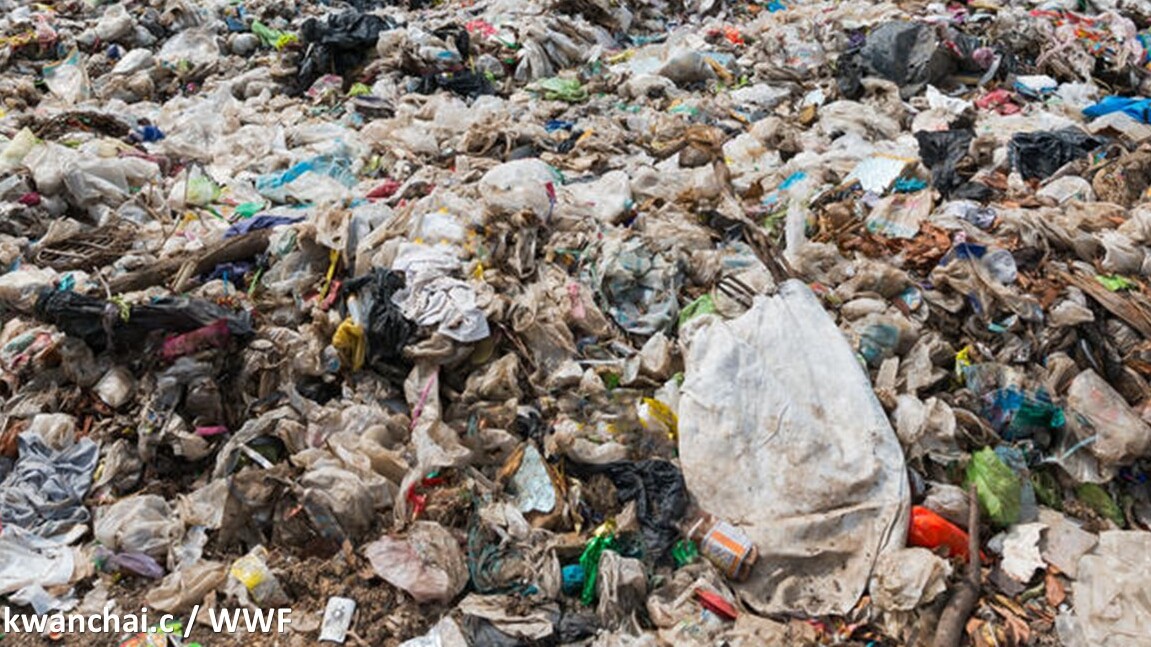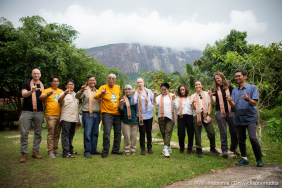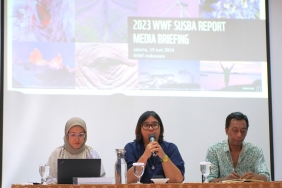WWF REPORT SAYS, ACCOUNTABILITY SYSTEM COULD SOLVE PLASTIC POLLUTION CRISIS
Gland, Switzerland (March 5, 2019) - The global plastic pollution crisis has the potential to worsen unless all actors across the plastic production chain become more accountable for their impact on nature and people, according to a new WWF report released today. The study, titled "Solving Plastic Pollution Through Accountability," found that while responsibility for reducing plastic use is focused on consumers and waste management and efforts, it is insufficient unless action is taken throughout the production chain.
The report, released ahead of the landmark United Nations Environment Assembly (UNEA) meeting in Nairobi next week, warns that an additional 104 million metric tons of plastic will risk contaminating our ecosystems by 2030 if there is no drastic change in approach.
The exposure caused by the breakdown of the system has had a particularly alarming effect on ecosystems and plant and wildlife life. More than 270 previously recorded species have been directly affected, while more than 240 species have been found to be contaminated by plastics. Every year, humans and animals are found to be consuming plastics from the food and water they consume, and the effects remain unknown.
According to the report, in a typical business scenario, CO2 emissions from the plastic cycle are expected to increase by 50% while the CO2 increase from plastic combustion will triple by 2030, due to poor waste management choices.
"The methods used in the production, use and processing of existing plastics are fundamentally broken. This is due to the lack of accountability systems, which are still in place and will continue to increase the volume of plastic affecting the natural world," according to Marco Lambertini, Director General of WWF International.
"We are in the midst of a plastic crisis and we realize that plastic pollution is not only bad but threatens underwater life and we are just beginning to understand the adverse effects on humans. This problem can be solved if we apply high responsibility throughout the supply and sales chain from design to disposal. The solution is to reduce and collect, recycle and find alternatives. We can solve this plastic crisis, but it requires the involvement of every individual who can take responsibility for the plastic they use," added Marco.
"The UNEA meeting is an important opportunity to take the first steps in solving this problem. Public outrage and concern over the plastics crisis is growing, along with demands for governments and businesses to show leadership and take real and decisive action. Indonesia, under the leadership of the Coordinating Minister for Maritime Affairs alongside the Minister of Marine Affairs & Fisheries and the Minister of Environment & Forestry, has an important opportunity this year to take a leading role in efforts to reduce ocean plastic pollution. We applaud that Indonesia, as the world's largest archipelago and second largest plastic polluter, committed to reduce marine debris by 70% and allocated $1bn per year to dramatically reduce the amount of plastic and other waste products polluting waters by 2025. If these commitments are implemented consistently, combined with a new global agreement, we are optimistic that we can solve this transboundary problem. Because an uncoordinated and too-small approach will not be enough to fix this crisis," said WWF-Indonesia's Marine and Fisheries Director Imam Musthofa.
The UNEA meeting, which takes place on March 11-15, will involve world leaders who are faced with the issue of plastic pollution as a major environmental problem. In this meeting, WWF will urge governments of various countries to start negotiating a legally binding international agreement to deal with marine plastic pollution.
This agreement will set national targets and reporting mechanisms that are transparent down to the company. In addition, the agreement should also provide financial and technical support for developing country governments.
The Solving Plastic Pollution Through Accountability report also calls for measures to strengthen existing initiatives, such as reducing the use of single-use plastics, improving national waste management plans and achieving 100% waste collection rates.
On Monday February 11, WWF launched a global petition calling for a legally binding agreement on plastic pollution, and has so far collected 200,000 signatures of support.
-FINISH-





